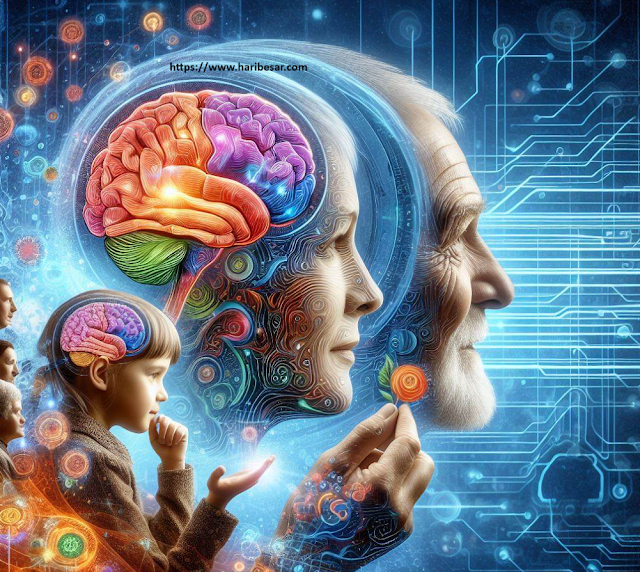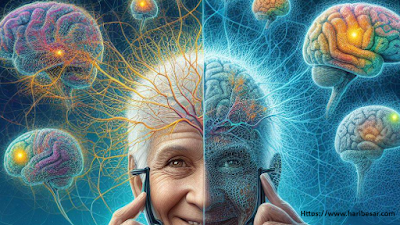Unlocking the Learning Nexus - Navigating the Cognitive Landscape Across Generations
Unveiling the Dynamics of Learning Across Generations: Can You Teach an Old Dog New Tricks?

Is it truly possible to impart new knowledge to an elderly individual, or is the capacity for learning confined to the youth? Over the years, considerable debate has centered around the distinctions in learning between the young and the old, questioning whether their learning processes are comparable. Younger individuals may assert that they grasp concepts more effectively, while their older counterparts may argue that the younger generation lacks substantial knowledge. The genuine reality of the matter may prompt you to ponder: if you're in the older demographic, is it worthwhile to embark on acquiring a fresh skill, or is it deemed too belated?
Developmental Milestones - Navigating the Learning Landscape from Elementary to Middle School Years
In the initial years of elementary school, children undergo significant developmental strides, encompassing the refinement of visual-motor coordination, language skills, reasoning abilities, motor skills, memory capacity, and social understanding. During this period, concepts coalesce into meaningful clusters, laying the groundwork for future utilization. Progressing from these early years into adulthood, children cultivate the skill to generalize information and extract abstract insights.
As children transition from later elementary school to the early stages of middle school, heightened brain activity is observed in posterior regions, where tactile, visual, and auditory functions intersect. This nexus serves as the storage hub for acquired knowledge, commonly assessed through verbal testing and achievement tests.
Neurological Evolution - From Maturing Frontal Lobes in Middle School to the Dynamics of Learning Across the Lifespan
As a child advances through the middle school years, there is a maturation of the frontal lobes in the brain. These lobes play a crucial role in evaluating behavior and adjusting it based on past experiences. The refinement of the frontal lobe continues from around the age of twelve into the twenties, leading to heightened cognitive functioning and improved social behavior.
The learning trajectory of a younger brain is influenced by various factors, including the environment, potential learning or social disabilities, and educational experiences. For some individuals, the opportunity to pursue tertiary education may not be available. Similar to any other organ, the brain's ability to learn can be adversely affected if not regularly or adequately utilized. In the early years, there is an innate curiosity and eagerness to learn about a wide range of topics. Knowledge accumulates steadily until early adulthood, where reasoning capacity peaks. However, beyond this point, the ability to reason begins to decline, and the efficiency of learning or retaining information starts to diminish as well.
The Complex Dynamics of Aging Minds - Unraveling Factors Influencing Cognitive Functioning in Older Brains
There was a previous belief that brain connections developed rapidly until the early twenties, and cognitive abilities would plateau and decline in middle age. However, current scientific understanding contradicts this notion. The human brain undergoes continuous changes and development throughout the entire lifespan, with no specific point where it remains in a steady state. While some cognitive functions may weaken with age, others have the potential to improve.
Several factors contribute to the impact on cognitive functioning in older brains, including the shrinking of the hippocampus, the deterioration of the myelin sheath covering and protecting nerve fibers, and the diminished efficacy of receptors on neuron surfaces, affecting their communication. Consequently, the encoding of new information in the brain may be less efficient, and the ability to retrieve stored information may decrease.
Cognitive Changes and Challenges in Aging Brains

Positive transformations in older brains involve increased dendritic branching and strengthened connections between distant brain areas. These changes enhance the older brain's ability to comprehend global issues, discern relationships among data sources, and grasp the overall 'big picture.' An illustrative example is the brain's diminished focus on individual leaves while becoming more adept at visualizing the entire forest.
As individuals age, there is a heightened susceptibility to brain diseases, particularly those impacting brain function and structure. Conditions such as dementia and Alzheimer's inflict damage on brain tissue, while other disorders like heart disease and diabetes also exert influence. It is not uncommon for mild forgetfulness to surface from middle age onward, or even earlier for some individuals. Routine occurrences, such as misplacing keys or forgetting a neighbor's name, are typical challenges associated with aging. However, if forgetfulness intensifies significantly, it warrants professional evaluation to rule out potential underlying issues.
Key Differences in Learning Between Young and Old Brains
- Working Memory Decline: As the working memory diminishes, certain learning processes, such as problem-solving, may become more challenging.
- Impact on Memory Encoding Strategies: Age influences the effectiveness of memory encoding strategies. The encoding of information may be less meaningful, posing challenges in data retrieval.
- Source Memory Decline: There is a decline in source memory, leading to the potential omission of encoding some information.
- Role of Emotional Relevance: Leveraging emotional relevance during information encoding can mitigate forgetfulness.
- Increased Processing Time: It takes longer for older brains to process new information.
- Enhanced Retrieval with Cues: Retrieval of information can be improved by utilizing cues.
- Benefits of Practice: Regular practice aids memory processes.
- Recollection of Gist over Detail: With aging, individuals may remember the essence of information or experiences but recall fewer details.


Post a Comment for "Unlocking the Learning Nexus - Navigating the Cognitive Landscape Across Generations"